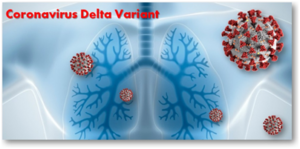Latest Updates: Avifavir, LY-CoV555, and Remdesivir

Neucrad Health June 15, 2020
The COVID-19 pandemic has infected more than 6,851,720 individuals (as of June 6 2020) and claimed over 398,260 lives. India is currently in the sixth position among COVID positive countries. Healthcare professionals across the globe are working round the clock to innovate new methods of arresting the outbreak. The relentless efforts have sufficiently improved the recovery rate of the infection and decreased the fatality count. Let us have a look at the latest development in the cure of this disease.
Antiviral Medication Avifavir Yields Promising Results in Russia
Russia has recently approved the use of an antiviral drug, Avifavir for treating COVID-19 patients. It is good news for India, as the medicine is similar to an influenza drug (Favipiravir) which is already in the stage-III clinical trial at Mumbai-based Glenmark Pharmaceuticals laboratories. Scientists in Russia believe that Avifavir is one of the most potent medicine to work against the SARS-CoV-2 virus. They have undertaken a clinical trial of this medicine, where it has successfully cured many COVID-19 patients. It is currently being manufactured by a joint venture between RDIF and ChemRar Group. The Russian Direct Investment Fund (RDIF) decided to deliver 60000 doses of this drug among various hospitals in June.
Recently, Favipiravir has caught the attention of many physicians thanks to its application against viral infections like bunyavirus, arenavirus, and filovirus. Doctors often prescribe this group of medicine for patients suffering from fever with thrombocytopenia syndrome (SFTS). It works promisingly against haemorrhagic fever and all strains of influenza virus. Among the COVID-19 patients, Avifavir (based on the drug Favipiravir) is thought to have an inhibitory effect against the RNA-dependent RNA polymerase (RdRP) enzyme, which is vital for the replication of the viral RNA. If the clinical trial turns out to be successful, then it would be encouraging news for COVID-19 patients.

Eli Lilly is developing a monoclonal antibody against SARS-CoV-2 virus
Most scientists now believe that along with the development of vaccines against the novel coronavirus, we also require suitable treatments against the infection. Eli Lily (American Pharmaceutical Company) in collaboration with a Vancouver based antibody start-up AbCellera are working on the development of a monoclonal antibody for targeting the SARS-CoV-2 virus. They prepared this antibody from a COVID-19 recovered patient within a short interval of just three months.
The developers have named it as LY-CoV555, and are currently conducting Phase I clinical trial of the medicine. It targets the spike protein of SARS-CoV-2 virus, and prevent them from multiplying in the host body. From the end of June, scientists will initiate Phase II Clinical trial of the medicine. If these trials go on according to the designated line, then the pharmaceutical company will start mass production of the antibody. It can act as a vital medication for those patients having a compromised immune system and other comorbidities.
India Approves Emergency Use of Remdesivir
On June 1 2020, the Drugs Controller General of India approved the emergency use of the 5-day course of Remdesivir for treating COVID-19 patients. Gilead Sciences Inc’s is manufacturing this antiviral medication, and it has produced positive results among COVID-19 patients in other countries. The US Food and Drug Administration also released the emergency use authorization, thanks to the reduction of the recovery period and alleviation of symptoms after administration of the medicine.
Remdesivir is a nucleoside analogue prodrug with broad-spectrum antiviral function. It has also produced satisfactory results against Ebola, Marburg, MERS and SARS viruses during animal trials. On April 29, 2020, Gilead Sciences, Inc. started with the Phase III Trial of the medicine.
Practise social distance and stay safe until we get vaccines or new drugs against the deadly virus.
References:
2. Lilly Begins World’s First Study of a Potential COVID-19 Antibody Treatment in Humans








